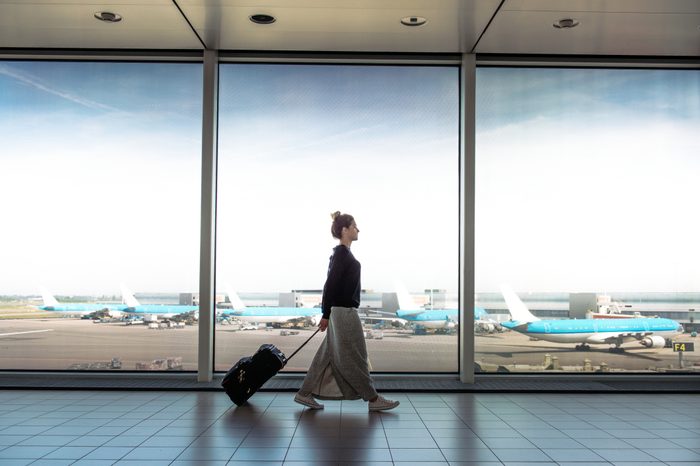
Travel in the time of coronavirus
“Do you think the coronavirus will impact your upcoming trip to Thailand?” my mom asked in early January, just as news of the new respiratory disease that was first detected in Wuhan, China began garnering international attention. At that point, Covid-19—as the World Health Organization (WHO) would officially name the infection on February 11, 2020—seemed like a minor problem and mostly contained to mainland China.
“I doubt it,” I responded, knowing my mother was always looking for any excuse to keep her 42-year-old daughter “safely” home instead of travelling the world. “We fly through Beijing, which is pretty far from Wuhan. And Thailand doesn’t have any cases. I’m not at all concerned.” (The country now has at least 48 cases, according to this coronavirus outbreak tracker from John’s Hopkins University.)
For months, I’ve been counting down the days until Thailand. My travel companion, Laura, and I had carefully chosen a group tour that started in Bangkok and would wind through the northern part of the country.
But as the days went by, the cases grew and the virus spread. By now, everyone was learning more about coronavirus and the role superspreaders play in transmission, and worldwide anxiety was mounting. I realized that if we were going, I’d have to do more than get the standard travel vaccines. (There’s no coronavirus vaccine as of yet.) I needed to learn more about the best ways to avoid contracting the virus while travelling. I began calling around, and I learned a lot.
Unfortunately, my trip was canceled due to coronavirus. However, here’s what I learned, in case you need to travel during this or future outbreaks.
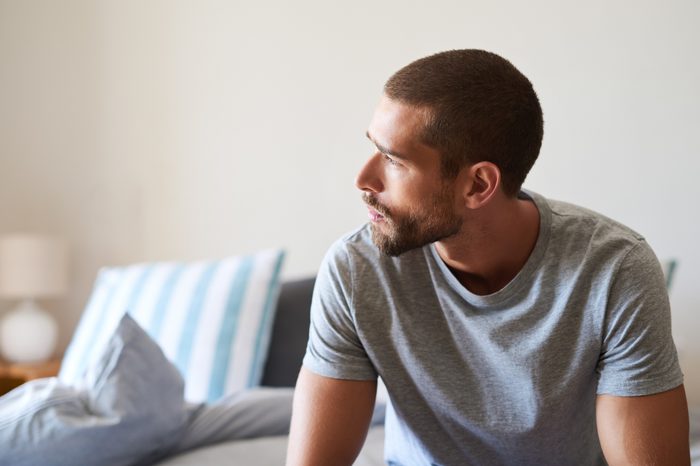
Try to avoid non-essential travel if you are at high risk
The first rule of travelling during an outbreak is to ask—do I really need to travel during an outbreak?
At a certain point, everyone has to weigh the pros and cons of travel during a global outbreak like Covid-19 to decide if you should still go or are better off staying at home. The cons are higher if you are in a high-risk group for infection, for example, if you have a weakened immune system. “I would caution folks with chronic conditions and compromised immune systems, such as senior citizens and people with young children, to avoid travel if possible,” says Niket Sonpal, MD, a board-certified internist and gastroenterologist, and clinical instructor at Kingsbrook Jewish Medical Center, Brooklyn.
Since Laura and I are healthy 40-somethings, we were still willing to roll the dice at the time. We understood the risks and were taking all the necessary precautions to protect ourselves through smart packing and following safer travel protocols.
However, our tour company canceled in early March due to the escalation of the coronavirus outbreak. I must admit, I felt somewhere between heartbroken and relieved at this decision—that someone else made it for me. “Perhaps it’s for the best,” my mother said while consoling me. However, if you must travel for whatever reason, here’s some things you should do.
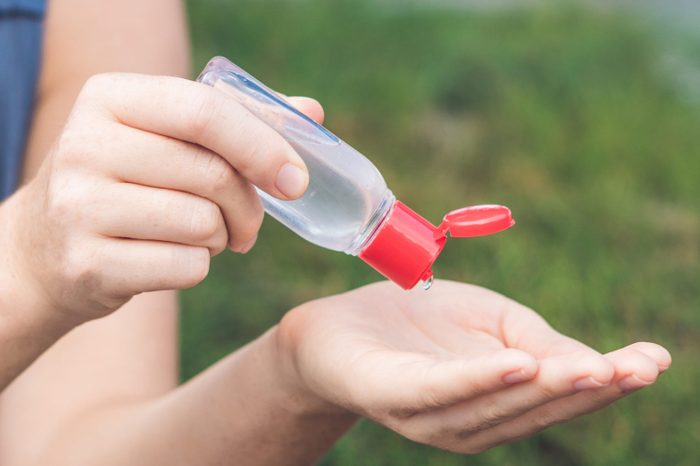
Keep hand sanitizer handy
Health Canada recommends relying on everyday preventive actions and good hygiene to help prevent the spread of germs and respiratory diseases—including Covid-19. These measures include frequently washing your hands with soap and water for at least 20 seconds, especially after using the bathroom, before eating, and after blowing your nose, coughing or sneezing. However, that may not always be feasible, especially while travelling. That’s where hand sanitizer comes in: “If soap and water are not available, use an alcohol-based hand sanitizer with at least 60 percent alcohol,” suggests Raj Dasgupta, MD, who is board-certified in internal medicine, pulmonary, critical care and sleep medicine at the University of Southern California. “And be extra careful about hand-washing if you are taking care of a newborn or an individual who has a weakened immune system.” Here are some of the best natural hand sanitizers available in Canada.
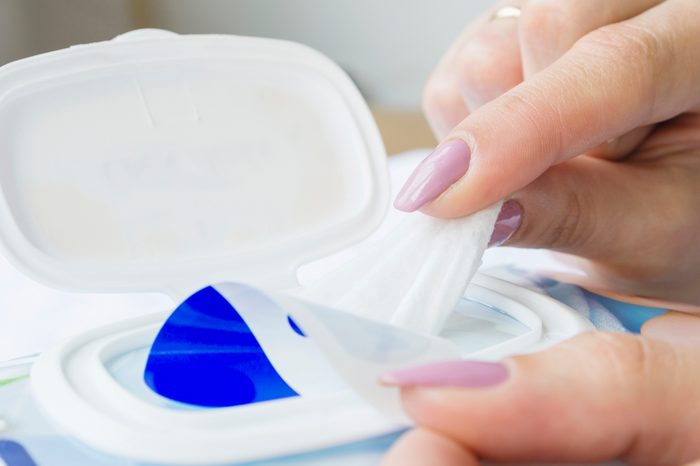
Carry antibacterial wipes
Be sure to slip some disinfecting wipes in your carryon and use them, liberally. “When travelling, wipe down tables, chairs, trays, and seat belts with sanitary wipes that kill 99 percent of germs, advises Douglas P. Jeffrey, a medical advisor for eMediHealth and a family medicine specialist from Eugene, Oregon. “Also, clean off objects such as handles and doorknobs before handling.” See how to germ-proof your plane seat, inspired to Naomi Campbell.
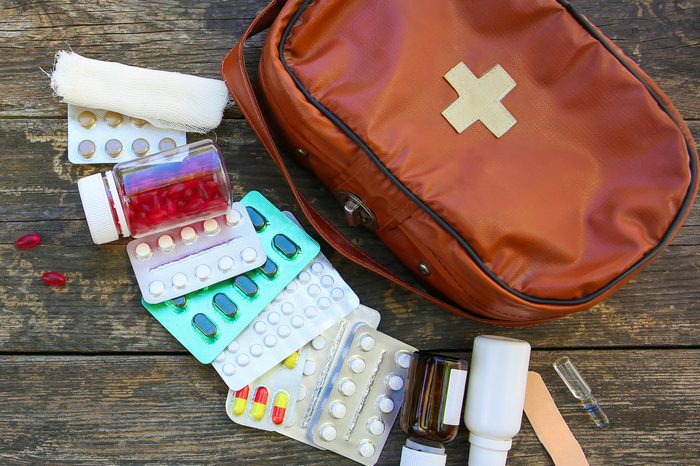
Pack extra prescription medications
If you have regular prescription medications, plan to take at least an extra two weeks of pills (beyond the length of your trip). Why? Because depending on how things shake out, you could very well find yourself trapped in a 14-day quarantine at the end of your trip, and many drugs are not available in other countries, advises Eudene Harry, MD, board-certified in both emergency medicine and holistic integrative medicine. Missing out on your meds is not only hard on you but it can leave you more susceptible to illness, she says.
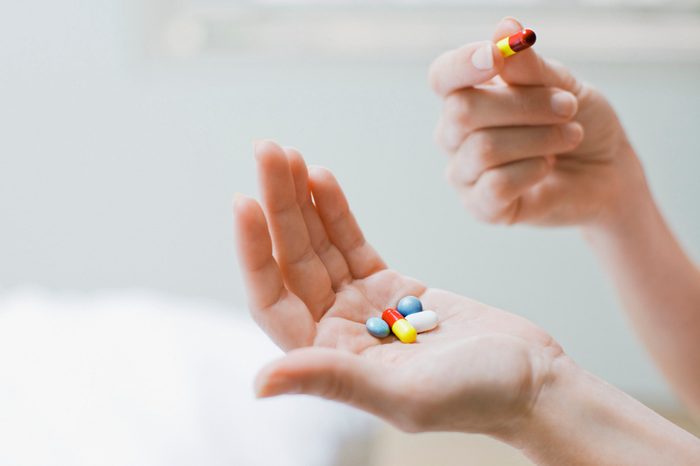
Take care of your immune system
One of the first lines of defense against any illness is a strong immune system. But you don’t have to swallow a pill: Reducing unnecessary stressors—such as working long hours, staying up late, and drinking too much alcohol—will help keep your immune at the ready, says Cynthia Thurlow, a nurse practitioner and functional nutritionist. “When you are in a stressed state with elevated adrenaline and cortisol, these hormones directly inhibit your immune system and you are more susceptible to a virus taking over that you may otherwise fight off,” explains Larry Burchett, MD, an ER doctor, board-certified family physician, and contributor to NBC Today. Use mindfulness to ward off stress.
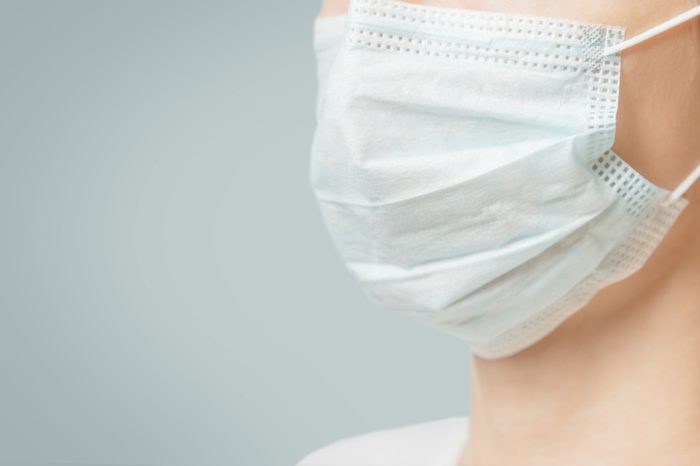
Skip the mask
The only reason you would need to wear a mask is if you’re taking care of a person with suspected Covid-19 infection, you are coughing or sneezing, or you’re using it in combination with frequent hand-cleansing, according to the World Health Organization. And another thing: You must know how to wear and dispose of it properly. If you fall into these categories, WHO offers videos on proper mask usage.
Amy Fuller, DNP, director of Endicott College’s family nurse practitioner master’s degree program, agrees that masks are not effective for protection. “If you are sick or coughing, you should wear a mask,” she says. “Otherwise, they are just helpful as a reminder to not touch your mouth or nose.” Another reason to skip the mask, she says, is that panicked people buying up hordes of masks and stockpiling them or shipping them overseas means there aren’t enough for those who do need them—healthcare workers and caregivers. That applies to both surgical masks and N95 respirators, which look similar but are different. One—the N95 respirator—protects against bacteria and viruses while face masks do not.
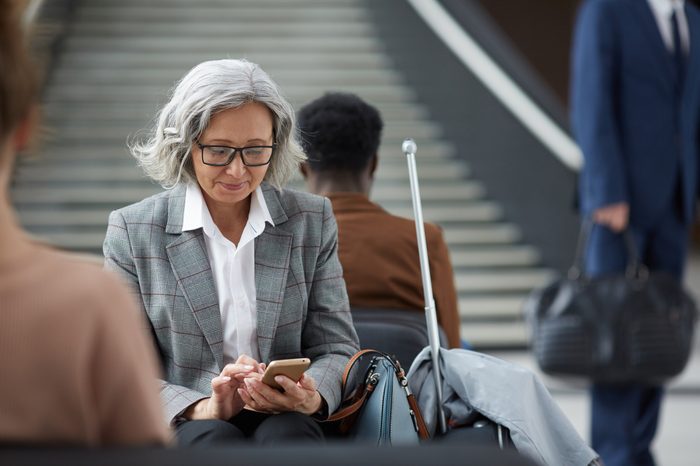
When travelling: Be antisocial
“Travellers should pay close attention to people in their surroundings and give a wide berth to someone coughing continuously, or who is wiping sweat off their face and seems feverish,” advises Dr. Sonpal. “This might be the only time in your life that you want to be as anti-social as possible. The fewer people you come into close contact with, the better. It’s a numbers game and the more you can cut your odds, the better.” How far is far enough? Avoid crowds and keep about 6 feet, or 2 metres, away from other people.
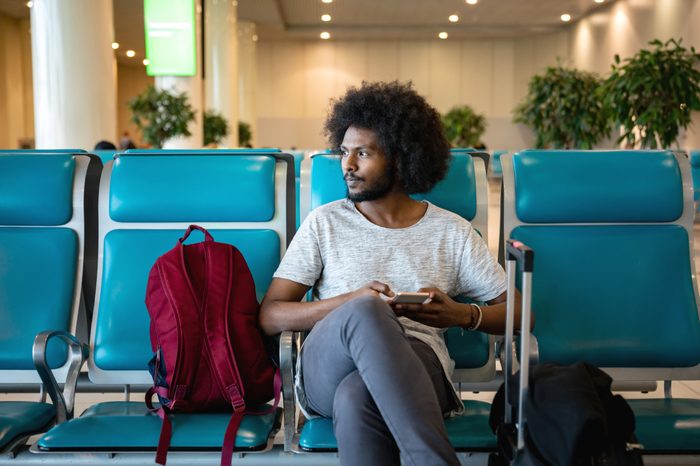
When travelling: Don’t touch your face
Actually, this is an all-the-time thing: A 2015 study published in the American Journal of Infectious Control revealed that on average, people touch their faces 23 times per hour, and nearly half of those touches were on the eyes, nose, and mouth—an effective way to infect yourself. “Avoid touching your eyes, face, mouth, and nose with unwashed hands, as this could easily pass the virus from hand to mucous membranes, where a virus can set up shop,” says Dr. Harry.
This is also true if you’re wearing gloves. “Gloves are only effective if you keep your gloved hands away from your face,” warns Dr. Sonpal. “The minute you touch your gloved hands to your mouth or nose or rub your eyes, the entire purpose of wearing the gloves is null and void.” If you do wear gloves, Dr. Sonpal says you have to avoid touching them when you take them off: Remove them with a paper towel and discard them immediately by tying them up in a plastic bag and throwing them out. (Also, be careful around these germ-infested things you touch every single day.)
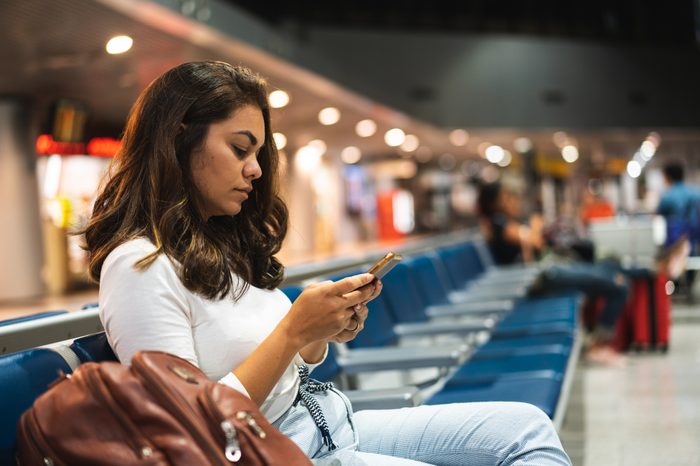
When travelling: Keep an eye on advisories
Health Canada has travel guide for Canadians including a list of risks, safety tips, and what to avoid. Make sure you’re aware of the status of the city and/or country you plan to visit. Currently, Health Canada recommends travellers avoid all nonessential travel to China, Iran, South Korea, and Italy, as well as cruise ships.
Next, learn how to help prevent yourself from getting sick.
